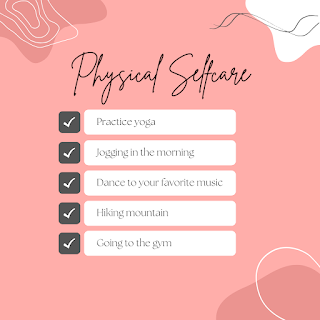Health is not merely a state of the physical body but an all-encompassing factor, which, therefore, includes psychological aspects as well as emotions in an individual‘s wellbeing. There are various components of the body’s health, which include cardiovascular endurance, muscular power, and flexibility among other components. It is important to appreciate health in all dimensions and the effects health particularly physical health has on all aspects of life can provide a motivation for making the right positive lifestyle changes.
The Foundations of Physical Health
From upon which we build and develop the day to day activities. It starts with exercise and physical activity which helps in enhancement of cardiovascular fitness plus the building of muscles and bones. Running skipping swimming or even playing sporting games aside from playing training us physically they also help in uplifting the spirits and cool down the tensions.
Benefits Beyond the Body
There is more to the advantages of being physically healthy than just being fit. If ever there is an activity that is laden with feel good hormones, it is exercising. These chemicals are the same funny hormones found in people when they are in love or those who have a deep and intense bond with each other. These endorphins help to reduce some complications such as anxiety, depression, among others. Engaging in physical activity on a regular basis has its cognitive benefits too in that it helps in memory, attention and overall clarity of the mind.
Wellness and Dietetics
Nutrition is of utmost significance when it comes to one’s physical well-being. A diet that consists of fruits and vegetables, lean meat, and whole grains contains important nutrients that help in the proper functioning of the body as well as boosting the immune system. Eating healthy balanced diets makes it possible to avoid excessive weight gain, prevents the onset of obesity-related chronic conditions such as diabetes and heart disease, and enhances overall well-being.
Preventive Health Services and Their Effects on Longevity
Another advantage of taking care of the body is that it encourages the engagement of preventive measures against the risk of illness. That is frequent visits to the doctor’s office for health examinations or carrying out health screening procedures. This enables the clinician to manage the identified health problem at an earlier stage or at the beginning of the condition or disease process. Indeed, diseases will occur, however, less damage will be done to the person and consequently, life expectancy will increase.
The Development of Mental and Emotional Strength
Furthermore, physical health is interwoven with mental and emotional strength. One way of achieving this is through physical work. The more one undertakes physical activity the more one’s stamina improves but also one’s ability to manage stress improves since the levels of hormones such as cortisol associated with stress will be reduced. There is a belief that building physical endurance and strength can also go hand to hand with self-confidence and self-image development.
The Importance of Healthy Behaviour Patterns from an Early Age
Ingraining healthy practices from childhood raises the future prospects of health in a positive way. It is important for both children and adolescents to participate in regular physical activity and healthy diets as they help fight obesity, promote ideal development and growth patterns and reduce the likelihood of contraction of lifestyle illnesses in the years to come.Social and Community Benefits
Most engagements in physical activities are in social contexts, for example, team games, fitness groups, or leisure activities. Exercising with somebody else helps flatten social barriers, promote friendship, and better health. Such interactions are important in providing social support which provides a feeling of inclusiveness and can help in tough situations.
Work-Life and Wellness, Productivity
One's mental fitness contributes to a healthy work-life balance and further enhances one’s productivity levels and energy by tackling stress. More often than not, employees who are concerned with living a physically disciplined life tend to be more attentive and concentrated which benefits job performance and pleasure.
Aging Gracefully
It is worth mentioning that as one gets older, the focus on physical health becomes paramount in determining how much more one can live independently and lead a fulfilling life within that span. For instance, Elderly persons will engage in regular physical activity and healthy eating to control chronic illness, avoid losing their ability to walk, and stay safe from falling. Elderly persons cannot remain inactive for long but there are age appropriate activities and exercises that can help in increasing endurance, flexibility, coordination, and strength thus promoting healthy aging and extending autonomy’.
Conclusion
To sum up, physical well-being cannot be undervalued if one wants to appreciate life to the fullest. When such individuals observe their diet, engage in exercise, and practice preventive measures, their physical and mental health, as well as their quality of life are all improved. Adopting a more comprehensive view of health —physical, mental, and emotional- is beneficial to the individual in that it builds fortitude, extends life expectancy, and allows all evidenced aspects of living to be enjoyed.






0 Comments